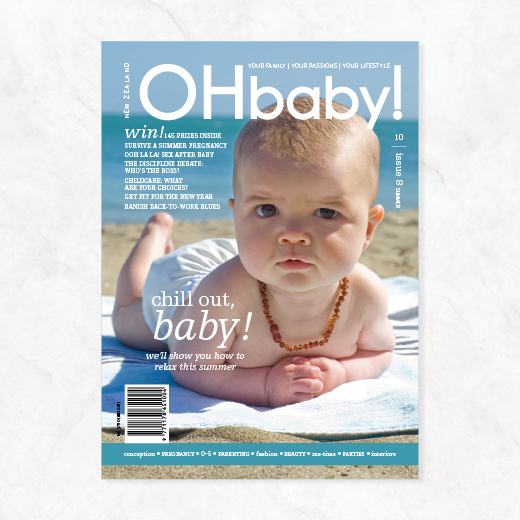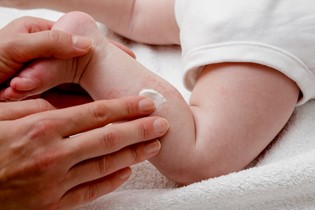Sex after childbirth

Dr Rachel Jones tackles the taboo subject of what happens to your sex life after baby arrives.
Sex in the months following childbirth can be a stressful issue for many new parents. You've successfully navigated your way through nine months of immense change during pregnancy and survived the rigours of labour only to find a whole new set of challenges awaiting you and your partner in the postnatal period. New Zealand's maternity system is generally proficient at looking after women in their first few weeks following birth, but this care usually finishes at the final postnatal check with your lead maternity carer (LMC) at four to six weeks. Unfortunately, from that point onward, many mums feel that they are left to fend for themselves, and have to work out their new maternal role, and any associated problems, in isolation. The lucky ones among us can turn to close female relatives and friends for sex life advice, but even then it can be a difficult and embarrassing topic to discuss. So what are the real facts and issues surrounding sex after birth?
🍂 Try to wait for the all-clear at your final postnatal check.
🍂 Build up to sex gradually.
🍂 Use lubricant gel if sore or dry.
🍂 Choose a position that avoids pressure on tender areas.
🍂 Avoid oral sex from your partner for the first few weeks.
🍂 Communicate.
🍂 Find practical solutions to fit sex into your new lifestyle.
🍂 Remember birth control.
🍂 Practice pelvic floor exercises.
🍂 See a GP or gynaecologist if problems persist.
🍂 Try not to feel pressured, there's no norm to aim for.
When to start doing it
Standard medical advice is to wait until your LMC has given you the all-clear at the final postnatal appointment before resuming intercourse. This four- to-six-week time frame is based on a number of factors.
After having a baby, most women feel battered and bruised down below, and it normally takes around six weeks for these sensations to subside as your body repairs. Your womb needs to shrink again, the cervix has to recover, and post-delivery vaginal discharge (lochia) will take a month or so to stop.
Theoretically, intercourse during this time can cause bacteria from the birth canal to travel into the vulnerable lining of the womb, potentially causing infection.
The final postnatal consultation is also a good time to discuss birth control before becoming sexually active again.
However, many women feel physically and psychologically ready to resume sex sooner than the traditional six-week wait, but it's still advisable to discuss the situation with your LMC for specific advice tailored to the individual you are, and the type of birth you've just had.
Ouch! It hurts!
The road to recovery can take longer if you had a difficult labour, an instrumental delivery, or an episiotomy/tear. A small tear can heal naturally in around two weeks, but larger ones or episiotomy cuts will usually need suturing. These stitches can make intercourse uncomfortable, and the time they take to dissolve can vary between 10 days to several weeks, depending on the type of material used.
The discomfort can be eased with painkillers (check suitability if breastfeeding), a sanitary pad soaked in witch hazel, and, if resuming intercourse, a lubricant gel.
Occasionally, repairs made to the birth canal can leave you feeling "too tight", and this is worth discussing with your LMC or a gynaecologist, as corrective treatment is available.
Sex can also be difficult after a Caesarean section. Your body has undergone a major operation, and although the pelvic floor remains intact, you will still experience lochia and uterine after-pains. Scar tenderness and fear of the incision site "bursting open" during lovemaking are very common concerns, so it's sensible to have your scar reviewed at the final postnatal check before restarting sexual athletics. If this seems like an eternity, try making love in a position that doesn't put pressure on your belly.
Whatever type of birth you've just experienced, take things slowly and try to build up to full intercourse in a stepwise fashion. Indulge in foreplay and when you're ready, start with positions that allow you to control the depth of penetration. Make your partner aware of potential sore breasts and cracked nipples. Avoid oral sex from your partner in the first week or so after delivery, as there have been rare but documented cases of air bubbles getting into the maternal blood vessels, and the out-come can be fatal. On a more positive note, having an orgasm in the postnatal period is absolutely fine, and it might feel even better than ever!
Your sex drive
Due to a mix of physical, psychological, and lifestyle changes, many mothers experience a low sex drive in the first few months after childbirth.
Sheer exhaustion is a major passion-killer, as you struggle to cope with the new baby, interrupted nights, housework, and maybe other children. Make sure you rest as much as possible, and try to make love at practical times. You may lose the spontaneity, but at least you'll have some energy.
Your body image can be distorted after birth, and it's easy to lose self-confidence when faced with leaky boobs, a saggy tummy, and stretch marks. Try boosting your self-esteem with some gentle exercise or a post-baby makeover.
Hormonal changes after pregnancy can also affect libido. Your levels of oestrogen are reduced, especially in women who are fully breastfeeding, and this can cause vaginal dryness, making intercourse painful. Applying a personal lubricant gel (available at the supermarket or pharmacy) can help make things more comfortable for both partners.
Continued lack of interest in sex can be associated with post-natal depression, so check you don't have other warning signs.
What's he thinking?
The postnatal period is also tough on the man in your life, and this can have a direct impact on his libido. Some men find the whole birth experience a major turn-off, or are just plain scared of causing you discomfort. A common concern is that you may have changed "down below" and intercourse might feel different. Your pelvic floor is never quite the same after a vaginal birth, but muscle tone can improve significantly with specific exercises that target the pelvic region.
Subconsciously, your partner may feel that your body now belongs to the baby, and some dads can feel a little jealous and excluded, especially if you are breastfeeding.
Identity issues are also common at this time, and couples can find it difficult adjusting to their dual roles as parents and lovers.
Communication is vital to prevent misunderstandings and hurt feelings. Encourage your partner to express his worries and allow him time to readjust. Ask a trusted relative or friend to look after baby sometimes so you can make a little time for the two of you.
Relax and enjoy
Don't get too disheartened, as you can recover quickly from the rigours of childbirth and experience better sex than before pregnancy. A newfound sense of womanhood and sensuality sometimes arises after giving birth. For the first time, many women are really aware of their body along with its capabilities and limitations. Some men love the postnatal shape and develop a new understanding and respect for their partner. In fact, many couples find that their new baby immediately makes them feel complete and adds a deeper level of intimacy to their relationship and sex life.
Remember that time is the greatest of healers so try hard not to be pressured by yourself or your partner. Take time to adjust to your new body and your new role in life. In today's society we are expected to be everything to everyone - the perfect worker, mother, and lover. We live in an age in which we excessively stress and strive for increasingly unrealistic goals. Perhaps it's time to rethink and start being kinder to ourselves.
Dr Rachel Jones is a family doctor, and currently a full-time at-home mum to her three dynamic daughters She is passionate about health issues involving women and their children. Rachel is now exploring the more creative side of medicine with freelance medical writing.

AS FEATURED IN ISSUE 8 OF OHbaby! MAGAZINE. CHECK OUT OTHER ARTICLES IN THIS ISSUE BELOW















